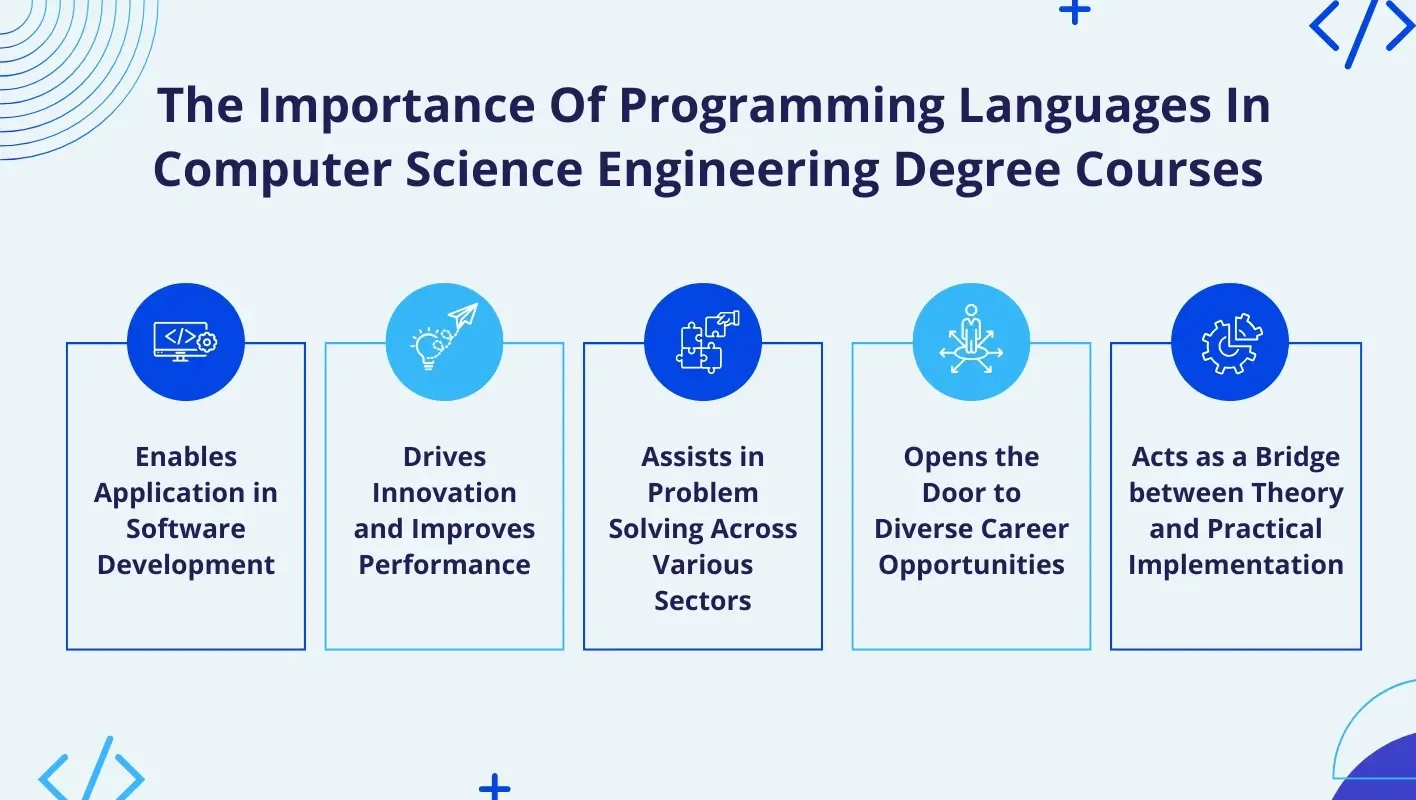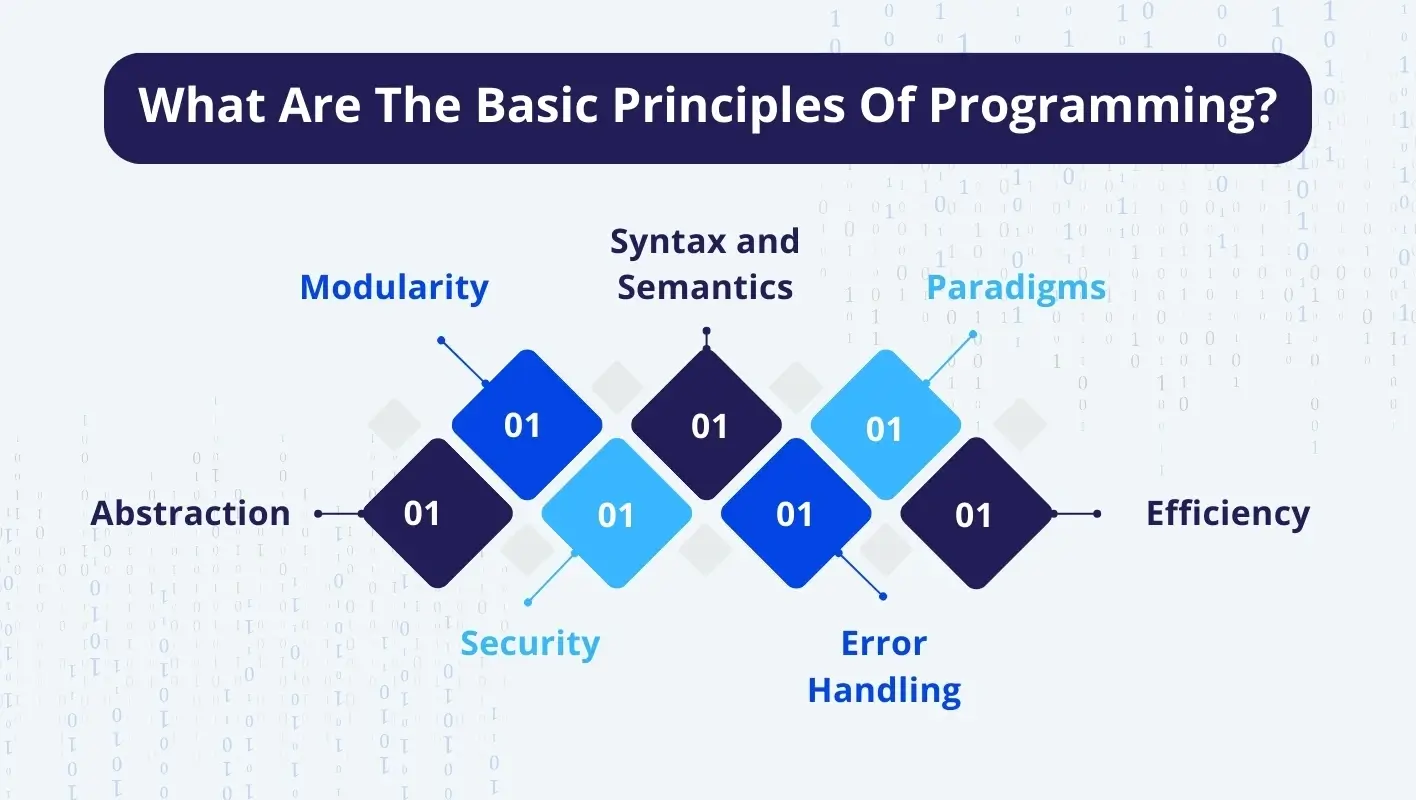
As discussed earlier, programming languages are the foundation of the current technological advancement. These simple interfaces allow humans and machines to interact, enabling innovation, automation, and solving problems.
Below in this blog, let us explore programming languages, the history of programming languages, and the importance of programming languages in computer science engineering.
Programming languages can be described as an interface between
human-brokering abstractions and the actual mechanisations available to solve problems. Language is classified based on its complexity and its use. Having a closer relationship with the hardware is Low-level languages such as Assembly, while
high-level languages such as Python, Java, etc. concentrate on good readability.
1800s–1940s: Following Babbage, and sometimes considered the world's first programmer, English mathematician Ada Lovelace developed the concepts of methods for the Analytical Engine. The first programming languages were binary coded.
1950s–1960s: The higher-level languages include Fortran, which was used for science applications; COBOL, for business applications; and LISP, which was directed to artificial intelligence.
1970s–1990s: C gave the concept of versatility, Java brought in the option of platform independence, and Python brought forward the feature of simplicity with it.
2000s–Present: Current web developments, systems programming, and mobile applications are regarded by JavaScript, Rust, and Kotlin, respectively.
Programming languages play a central role in computer science engineering and are the basis for introducing core concepts in technology. This is achieved by allowing students to transition from teachers' guided knowledge absorption to the constructive absorption that prepares them for real-life situations.

The above analysis shows that programming languages are the elements that form the software. They enable engineers to convert concepts into reality — from building basic mobile applications to developing advanced operating systems. That is why studying programming languages such as Java, Python, and C++ allows students to understand how to create easily navigable, effective, and flexible applications. Such practical experience enables them to develop and construct new concepts, providing innovations for several fields and enhancing people's livelihoods.
Forces such as artificial intelligence, machine learning, and blockchain have turned into game-changers across industries, and programming languages drive such forces. There are programming languages for AI algorithm development, like Python, and blockchain, like Solidity. Also, through programming, students can optimise their code, improve its performance, and invent new technologies.
Programming languages can be used for writing simple code and are significant instruments for solving various existing issues. They perform routine work, analyse big data, inform about businesses' performance, and improve processes in health care, finance, and many other sectors.
Programming languages are the bridge between theory and practice in computers. It prepares students to develop algorithms and data structures that are abstract concepts that must be transformed into real programs. This knowledge consolidation approach prepares them for what they must do at the workplace to transform and grow professionally.
Programming language concepts are the foundational concepts of the programming languages, forms of architectures of the programming language, and the fundamental functionality the programming language supports. These principles help in the overall design and implementation of languages. They guarantee that languages are as efficient as possible, fail-safe, and capable of being utilised in many ways. Let's explore these principles in detail:

Specifically, abstraction boils down realistic representations to the models that contain only salient characteristics that do not overload the system. Every programmer knows that this is one of the principles of higher-level programming languages, and it makes programming the code and its subsequent enhancement easy.
Organisational advocacy: All aspects of modularity enable programming coding and reusable components or modules. It makes the system more accessible for more than one individual to maintain, scale, and develop.
Syntax: Specifies constraints of syntactic correctness, keywords syntax and usage of punctuation marks.
Semantics: Makes sure the code acts according to the logic of the code.
Programming languages often adhere to specific paradigms, such as:
Imperative Programming: Covers procedures and processes: The course is based on teaching procedures and processes in algorithms (e.g., C, Python).
Object-Oriented Programming: Focuses on objects and classes (for example, Java, C++).
Functional Programming: Stresses non-modifiability and pristine functions (for example, Haskell, LISP).
The efficiency of a language depends on how the language uses other systems, including memory and CPU. Low-level language focuses extensively on speed, while high-level language focuses on simplicity.
It indicates that reliable programmable languages possess structures that enable handling errors to avoid system crashes and deliver as many positive user experiences as possible.
Security principles make sure that programming languages do not have or open up doors to holes, which is critical in the current complex network world.
It is all an effort to help novices who want to become computer science engineers understand the basic programming principles. These principles define the language and impact the best practice programming.
Your First Order
Get 20% OFF!
The principles of programming languages are not just theoretical concepts; they have practical implications in every aspect of software development:
Compliance with the programming principles results in lesser complexity and either more readable or more easily maintainable code equivalent.
By knowing these principles, users can quickly learn new languages built on the same fundamentals.
By understanding fundamentals, engineers can test new concepts and possibly the frontiers of engineering.
They argued that it is easy to impose fault-fault-based structures that increase the reliabprogram's reliability, thus making users confident in the programs.
Following uniform principles is beneficial as all the teams follow the same coding standards or patterns.
Programming languages are the heart and soul of computer science engineering. They are used to create tangible concepts in present-day scenarios. The principles of programming languages will enable engineers to write better code, create more dependable systems, or otherwise make a significant contribution toward constructing a better technological future. The programming process can only start with learning about the profession, reviewing its fundamentals, and acknowledging vital programming rules.
The newcomers act as compasses throughout their journey as coders. At the same time, experienced engineers are the grounding rules to look at when developing software and working in the rapidly progressing field of computer science. If you are a student of computer science and feeling overwhelmed by the assignment pressure, you can reach out to Quick Assignment Hub. We have expert writers to help you complete your assignments with ease.
© Copyright Quick Assignment Hub All rights reserved.